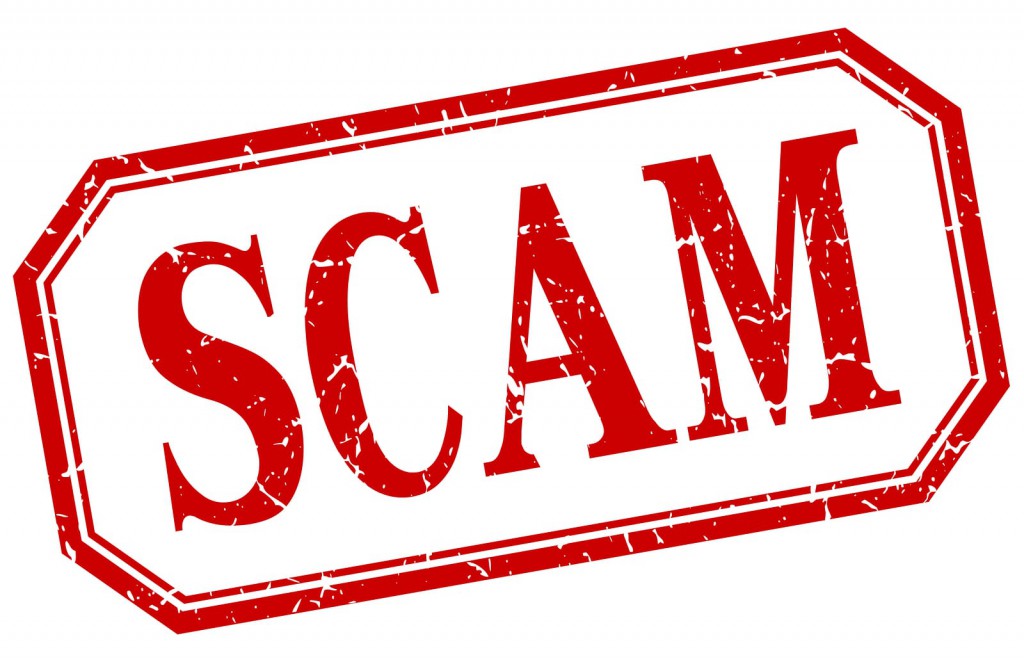Criminals and con artists work hard to part victims from their money, so the Better Business Bureau (BBB) is making an effort to warn and educate the public about their most common scams.
To that end, the North American nonprofit organization launched its BBB Scam Tracker earlier this year to accept reports and keep a tally of the most popular ploys con artists use to reel in victims. With the year now coming to a close, the agency has released a listing of the top scams reported to it from the United States and Canada.
While fraud can take on many different forms, “impostor scams” are by far the most commonly run in North America, the BBB notes. They involve criminals who pose as trusted officials, such as IRS agents, police officers and debt collectors. Whether they make contact via phone, online or in person, the aim of imposters is to get victims to believe who they are so they can dupe them into parting with their cash or sharing their personal information to enable identity theft.
All of the top 10 scams involved some form of impostor scam.
The good news, the BBB says, is that many would-be victims recognized the impostors. “About 85% of those reporting scams to BBB recognized them as frauds before any money was stolen,” the organization reported on its website. Some people, however, encountered especially good impostors. “The top ten scams still account for more than $1 million lost from those who filed with BBB.”
You Might Also Enjoy: Federal Government Asks Google for Help Fighting Student Debt Scams
The three most highly reported scams were:
Tax scams – The BBB received 2,413 reports about this scam that involves a phony call from an “IRS agent” that claims back taxes are owned. The caller ID is commonly spoofed in this scam to add credibility. Callers will often threaten legal action, wage garnishment or jail time to add a sense of urgency to this ploy, as well.
Debt collections – A total of 835 reports were filed about this type of fraud, which involves a call from someone who claims the victim has an unpaid debt. The caller will threaten lawsuits, jail time or wage garnishment if a payment isn’t made immediately. Caller ID spoofing may occur with the caller pretending to be from a law enforcement agency or other government entity.
Sweepstakes/prizes/gifts – Another 811 reports were filed related to this kind of scam that involves telling a victim he or she has won a prize, but must cover incidental expenses to receive it, such as processing, delivery or insurance.
Other scams were also commonly reported to the agency, including tech support, government grant and advanced fee loan ploys. Credit card scams, work-from-home schemes, fake check and money order and lottery scams were also reportedly briskly in 2015, the BBB noted.
Avoiding Scams
Scams are run in abundance, but there are steps consumers can take to avoid them. When phone calls, emails or in-person visits are unsolicited and money is demanded, consumers can benefit by taking a step back to fully vet the bearer of the news and evaluate the situation. Refraining from giving out personal information until the recipient is fully vetted is also essential.
When in doubt, call the agency or business directly using a number found on a bill or on the back of a credit card. It is imperative to not trust a number provided by a caller ID, an unsolicited email or an unknown, in-person visitor. The best defense in many cases is a healthy dose of skepticism.
The BBB collected more than 10,000 scam reports since it launched its Scam Tracker. Those reports only represent a sliver of those reported to local law enforcement and the federal government through websites such as StopFraud.gov. Consumers who are contacted by suspected scammers are urged to report the encounters.






